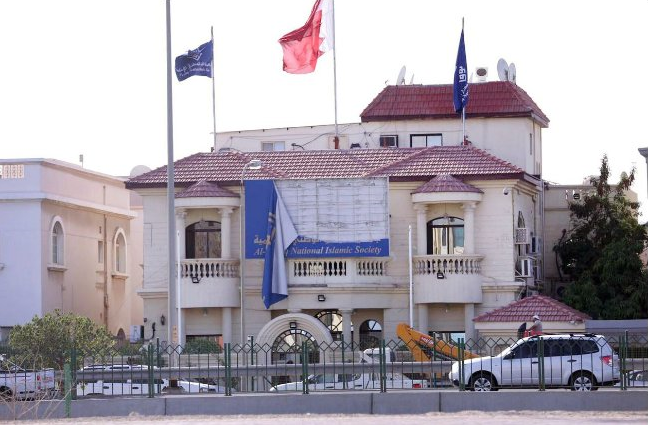On 14 June 2016, the Justice and Islamic Affairs Ministry of Bahrain filed a legal request to suspend and freeze the assets of Al-Wefaq, the country’s largest opposition society. Hours later, a Bahraini court made an expedited ruling and approved the request.
The court has scheduled a hearing on 6 October to decide whether to “liquidate” the party and completely dismantle its network.
The suspension, and possible liquidation, of Al-Wefaq is the latest move in a longstanding government campaign against the leading opposition society. In May, a Bahraini court of appeals doubled the sentence of Al-Wefaq’s Secretary General Sheikh Ali Salman after it overturned his previous acquittal on the charge of “seeking to overthrow the political system.” He now faces a total of nine years in prison under the additional charges of incitement and insulting the Ministry of the Interior. Furthermore in 2014, US Assistant Secretary of State for Democracy, Human Rights, and Labor Tom Malinowski was ordered to leave Bahrain after meeting with Al-Wefaq leaders. According to the state media outlet, Bahrain News Agency (BNA), the meetings violated “diplomatic norms” and “normal interstate relations”.
Last week’s statement run by BNA argued that the Government of Bahrain suspended Al-Wefaq to “safeguard the security of the kingdom.” The statement accused Al-Wefaq of operating “within the framework of external religious political reference” and “under the apparent disregard to the duties of citizenship and peaceful coexistence.”
Bahraini authorities have recently intensified their suppression of peaceful activists. On 13 June, police arrested president of the Bahrain Centre for Human Rights (BCHR), Nabeel Rajab, even though he was previously pardoned by the king. Last week, Zainab al-Khawaja, another prominent activist, fled to Denmark after authorities threatened her with re-imprisonment.
On 13 June, United Nations High Commissioner for Human Rights Zeid Raad al-Hussein acknowledged the deteriorating situation in Bahrain and emphasized, “Repression will not eliminate people’s grievances, it will increase them.” Recent events – including the government’s decision on 20 June to strip Ayatollah Sheikh Isa Qassim, one of the country’s leading Shia clerics, of his citizenship – continue to demonstrate that Bahraini authorities are unwilling to learn this lesson.
Alexander Kochenburger is an Advocacy Intern at ADHRB.





